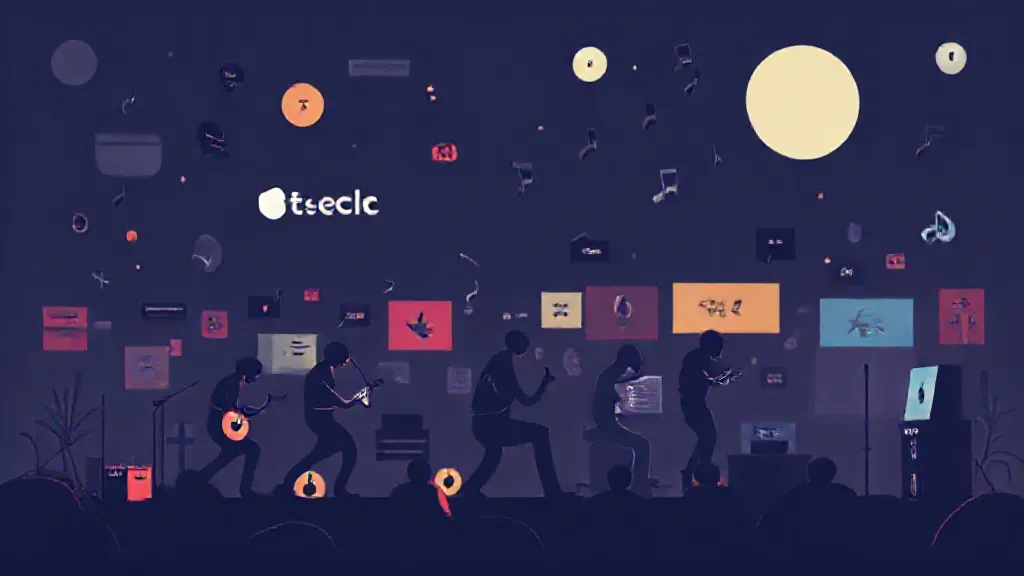The music industry has undergone a seismic shift in recent years, with streaming services emerging as the dominant mode of music consumption. This transformation is not merely a trend but a reflection of changing consumer habits, technological advancements, and the broader cultural landscape. Streaming music is not just the future; it is reshaping the way we experience sound, connecting artists to audiences like never before.
The Rise of Streaming Services
The evolution of music consumption began with physical media such as vinyl records, cassette tapes, and CDs. However, the advent of the internet and digital technology revolutionized how music is distributed and consumed. The launch of platforms like Spotify, Apple Music, and Tidal has made it possible for listeners to access vast libraries of music with just a few clicks.
This shift has been driven by the convenience and immediacy that streaming offers, allowing users to create personalized playlists and discover new artists effortlessly.
Changing Consumer Behavior
Today's listeners are not just passive consumers; they are active participants in their music experience. Streaming services have integrated social sharing features, allowing users to share their favorite tracks and playlists with friends.
This social aspect enhances the listening experience, making it more communal and interactive. Moreover, algorithms that curate personalized playlists based on listening habits have transformed how people discover new music, fostering a culture of exploration and engagement.
Economic Implications for Artists
While streaming has democratized access to music, it has also sparked debates about the economic implications for artists.
Traditional revenue models based on album sales have been disrupted, leading to a new landscape where artists must adapt to earn a living. Streaming platforms typically pay artists per stream, which can be significantly lower than traditional sales. This has prompted discussions about fair compensation and the need for a more equitable distribution model within the streaming ecosystem.
The Role of Technology in Music Streaming
Technological advancements have played a pivotal role in the rise of streaming music. High-speed internet and the proliferation of smartphones have made it easier than ever for consumers to access music on the go. Additionally, innovations in audio quality, such as high-resolution streaming, have enhanced the listening experience, attracting audiophiles who seek superior sound quality.
The integration of artificial intelligence in music curation is also revolutionizing how listeners interact with their favorite tracks, creating a more personalized experience.
Impact on Music Genres and Diversity
Streaming has also had a significant impact on the diversity of music available to listeners. Unlike traditional radio, which often favors mainstream hits, streaming platforms provide a platform for niche genres and independent artists.
This has led to a broader representation of musical styles and cultures, allowing listeners to explore a rich tapestry of sounds that may have previously been overlooked. The global reach of streaming services has facilitated cross-cultural collaborations, further enriching the music landscape.
The Future of Live Music and Events
As streaming continues to dominate music consumption, its influence on live music and events cannot be overlooked.
Virtual concerts and live-streamed performances have gained popularity, especially during the COVID-19 pandemic, providing artists with new avenues to connect with audiences. The integration of augmented reality and virtual reality technologies is poised to revolutionize the concert experience, allowing fans to engage with their favorite artists in immersive ways.
Environmental Considerations
The environmental impact of music consumption is an increasingly important topic in today's world.
Streaming music eliminates the need for physical media, reducing waste and carbon footprints associated with manufacturing and distribution. However, the energy consumption of data centers that power streaming services raises questions about sustainability. As the industry evolves, finding a balance between accessibility and environmental responsibility will be crucial for the future of music streaming.
Conclusion: Embracing the Future of Music Consumption
In conclusion, streaming music represents a profound shift in how we listen to and engage with music. Its convenience, accessibility, and ability to connect artists with audiences have solidified its place as the future of listening. As technology continues to evolve and consumer preferences shift, the music industry must adapt to create a sustainable and equitable ecosystem that benefits both artists and listeners alike.
The future of music is streaming, and it is an exciting time to be a part of this dynamic landscape.
